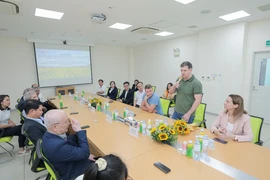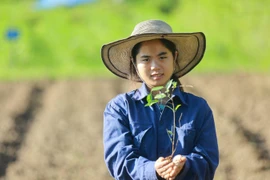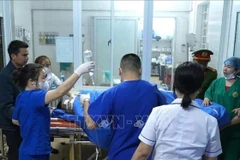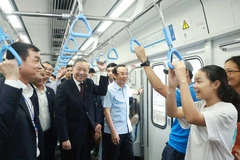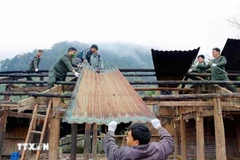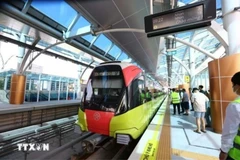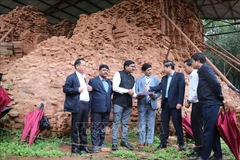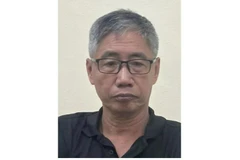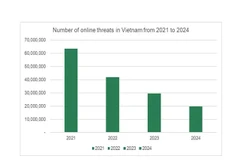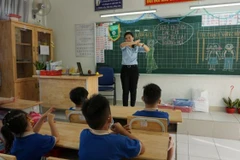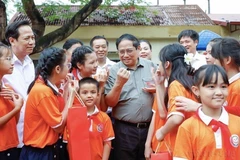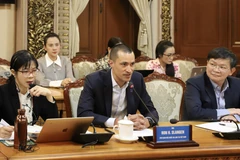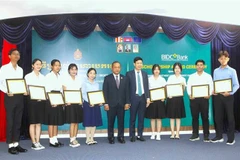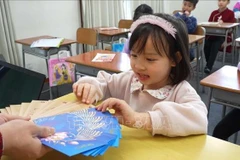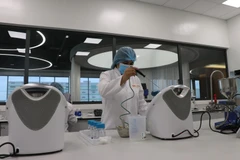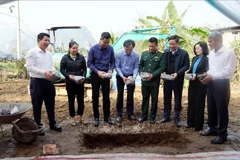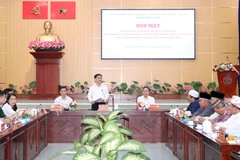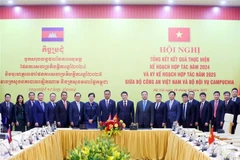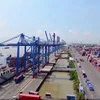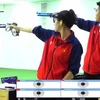Hanoi (VNA) - Experts argue that a dedicated law on school meals is essential to ensuring proper nutrition for students, which plays a crucial role in enhancing the physical development and stature of the Vietnamese population.
Concerns over the nutritional challenges of Vietnamese children is due at least partly to a lack of focus on school meals, which may contribute to non-communicable diseases in adulthood. Experts advocate for legislating school meals to provide a legal foundation to address the nutritional issue to foster a healthier future generation.
Obstacles to qualified meals
Nguyen Thanh De, Director of the Department of Physical Education under the Ministry of Education and Training, acknowledged multiple challenges in implementing school nutrition programmes.
The first hurdle lies in policy coordination, with some localities struggling with inconsistent and ineffective inter-sectoral collaboration. Public awareness campaigns on nutrition and food safety also fall short of meeting actual needs.
In remote and underprivileged areas, many schools lack facilities for boarding services, and meal designing does not always align with students' age-specific nutritional requirements.
Another major challenge is the shortage of trained personnel to manage school meal programmes. Many cafeteria staff work on short-term contracts without formal training, resulting in sub-quality meal preparation.

Additionally, nutrition should go hand in hand with physical activity, yet physical education remains undervalued in many schools, often treated as a secondary subject with insufficient facilities and specialised instructors.
The lack of trained personnel ultimately affects the ability to provide balanced meals and promote physical activity, further complicating efforts to improve school nutrition.
According to De, while school nutrition has gained attention, Vietnam still lacks legal regulations on the issue, unlike many developed nations. The absence of a legal framework has led to inconsistent management, oversight, and implementation of school meal programmes. Initiatives such as the school milk programme and the school meal programme have yet to be widely adopted in a sustainable and nationwide manner.
“A school meal programme directly impacts students' health and academic performance, yet there are currently no standardised guidelines, leading to a lack of uniform oversight through legal regulations,” De noted.
Nguyen Thi Mai Hoa, Vice Chairwoman of the National Assembly's Committee on Culture and Education, emphasised that every strategy must be backed by sufficient resources. These programmes should be funded by central and local budgets, as well as social contributions.
“Our policies have been well-intended, but implementation has been insufficient,” Hoa stated.
She highlighted another major challenge: clarifying the responsibilities of stakeholders, from local authorities to relevant ministries. “To effectively implement school nutrition programmes, all parties involved must be fully held accountable,” Hoa stressed.
Need for a dedicated law on school nutrition
As challenges in child nutrition persist, Hoa underscored the need for a legal framework to ensure effective implementation of school nutrition policies.
“By legislating school meal standards, we can establish comprehensive and consistent policies that improve the overall nutrition of Vietnamese people, particularly pupils,” she said.

Vietnam’s national nutrition programmes have set fundamental goals and introduced support policies, but experts argue that the next step should be the development of a school nutrition law.
“Many countries have enacted a dedicated law on school nutrition, achieving significant results. Such legislation would provide a foundation for government agencies, local authorities, and educational institutions to effectively prepare and enforce school meal standards,” De said.
Likewise, Associate Professor Tran Thanh Duong, Director of the National Institute of Nutrition under the Ministry of Health, emphasised that achieving Vietnam’s national nutrition strategy requires comprehensive, continuous, and cross-sector interventions. This includes strengthening mechanisms and policies, enhancing inter-agency cooperation, mobilising social involvement, improving human resources, fostering international collaboration, applying technology, and advancing nutrition research and education.
Beyond school and educational efforts, school nutrition programmes require active participation from families, businesses, and the wider community. Parents should be equipped with proper nutritional knowledge to promote healthy eating habits both at home and in school. Food enterprises also play a crucial role in providing nutritious products and supporting child nutrition initiatives.
As a leading company in the food and beverage sector, TH Group has actively contributed to improving school meals.
TH Group founder Thai Huong has been advocating for enhancing Vietnamese children’s physical development through school nutrition.
Despite Vietnam’s progress in improving nutrition, challenges remain, especially for preschool and school-aged children. The country still ranks among the lowest globally in average height, standing 15th from the bottom, Huong noted.
Learning from global models
According to the World Health Organization (WHO), approximately 86% of a person’s height and physical development occurs by the age of 12. This underscores the critical importance of investing in children's health and cognitive growth during these formative years.
Several countries have successfully implemented school nutrition laws. Japan, for instance, introduced the School Lunch Act in 1954, setting nutritional and food safety standards for school meals. In Thailand, the government enforces strict school lunch standards, while Indonesia recently announced a free school lunch programme starting in 2025.
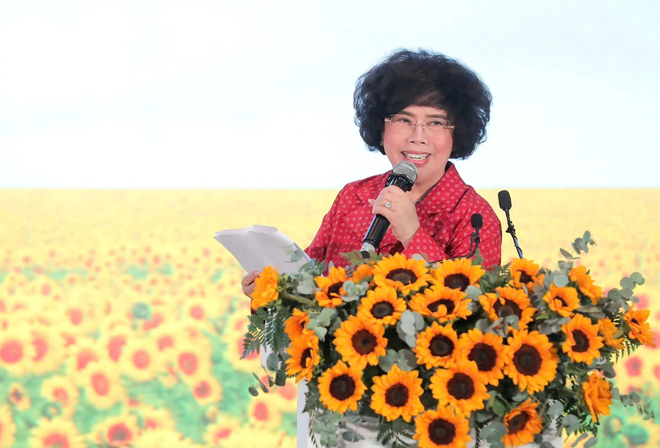
During a meeting between Party General Secretary and President To Lam and a delegation of outstanding business leaders from the Vietnam Chamber of Commerce and Industry (VCCI) and the Vietnam Association of Private Entrepreneurs on October 11, 2024, Huong reiterated her call for a school nutrition law.
“Vietnam has made great strides in nutrition, yet significant gaps remain, particularly among young children. A dedicated law is needed to establish clear school meal standards, ensuring children’s health and the future of our nation,” she emphasised.
For her part, Hoa further stressed that school nutrition is a decisive factor in shaping a child's intellectual and physical development. “If we fail to invest properly in this stage, the consequences will be felt throughout adulthood,” Hoa warned.
She also noted that school nutrition impacts more than just physical health - it influences cognitive abilities and emotional well-being. “When children are healthy, they learn better. This makes school nutrition a key component in Vietnam’s broader educational reforms. Recognising this need now may be late, but better late than never,” the legislataor concluded./.

